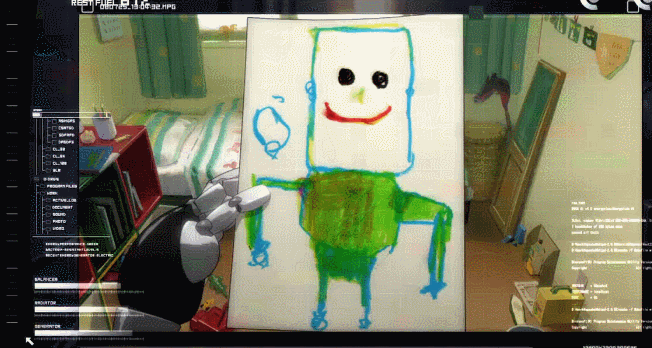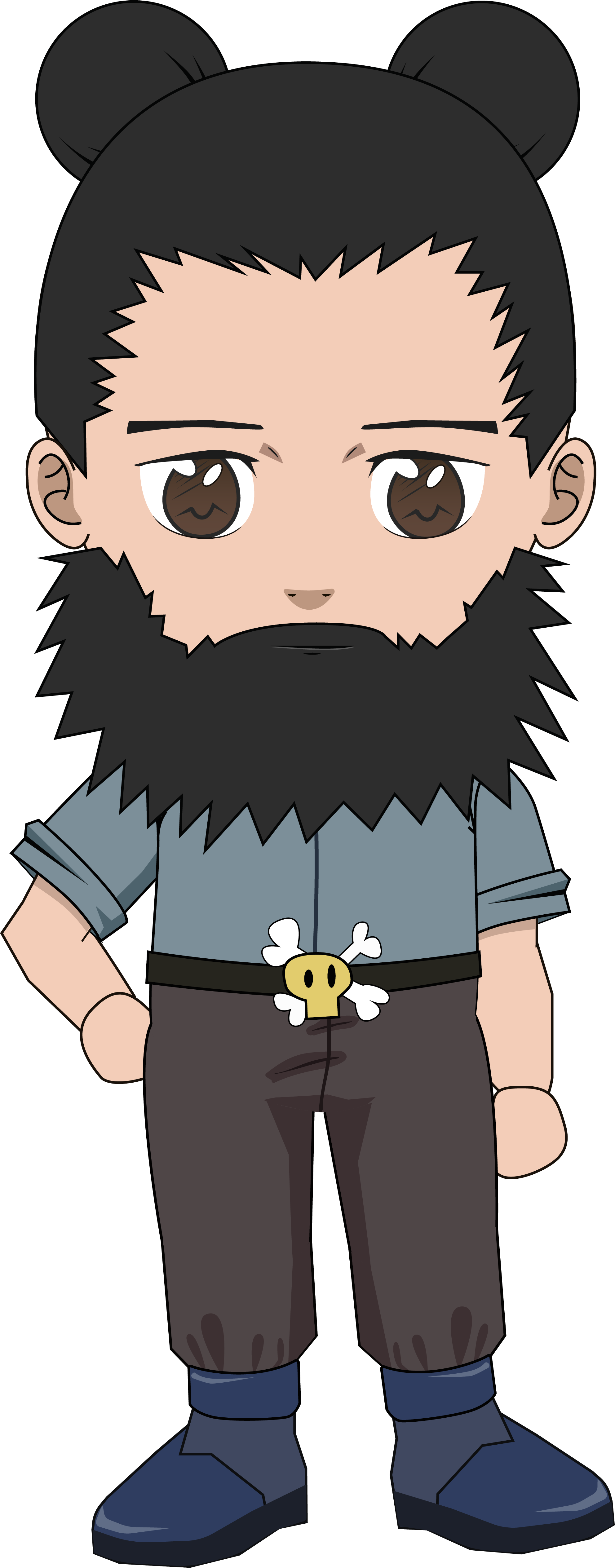Находясь на сайте, вы даете согласие на обработку файлов cookie. Это необходимо для более стабильной работы сайта
hello, dear friend! so, let's review our conversation about robots and androids
Share the longread


During this week we've watched two anime films about robots — "Time of Eve" and "Yokohama Kaidashi Kikou".
They give us a chance to think about the problems and realities of robots in both fiction and real life. We've looked at robots in terms of technology as persons, both in real life and anime. In anime, robots are either tools or toys, or a strange combination thereof. They are metaphors for labor and power, as well as an allegory of humanity.


When asking "Are the robots humans?" what we are actually asking is "Are we humans?"
When asking "Are the robots humans?" what we are actually asking is "Are we humans?"

These two anime films about robots are the parables of displacement and exploitation.
We are humans as long as we can wonder and love. On the other hand, people are predictable and often act automatically. Multiple sciences that describe the human being as a scientific problem (such as psychology, anatomy, genetics) tell us, in some way, that we are, in fact, robots. But in the face of loneliness and accidental technological transformation of ecology we learn that the question doesn't matter so much. Robots and humans are both inhabitants of the same damaged planet

Next week we are going to look at cyborgs and cybernetics. main anime of next week is "Ghost in the Shell 2: Innocence" see you!


- directed by Rintaro. production: Madhouse
- directed by Shinji Aramaki. production: Digital Frontier, Geneon Entertainment, TYO Animations
- directed by Kanta Kamei. production: Studio 3Hz, Orange


- Japan is considered to be the most highly robotized society in the world, which at the industrial level at least is certainly true. There are presently some 250,000 industrial robots employed in Japan, which is more than in any other country, and this number is expected to double in less than five years, and quadruple in ten. Furthermore, according to a claim that has been around at least since the early 1960s, there is a 'love story' between Japan and robots (Koestler 1960). The Japanese are said to love robots, while Westerners tend to fear or at least to be wary of them, and many studies show that social acceptance of robots is higher in Japan than in Europe (Hornyak 2006). Japanese newspapers are always eager to report that someone invented a robot for making sushi or a robotic bed for elderly patients that transforms into a wheelchair. Robots in everyday life are seen as useful helpers rather than potentially dangerous rivals
Dumouchel, Paul. Technical Individuals and Systems. NatureCulture 2017 - Hiroshi Ishiguro builds androids. Beautiful, realistic, uncannily convincing human replicas. Academically, he is using them to understand the mechanics of person-to-person interaction. But his true quest is to untangle the ineffable nature of connection itself
Mar, Alex. Love in the time of robots. Wired. 2017
- Just as they will change healthcare, manufacturing, and the military, robots have the potential to produce big changes in policing. We can expect that at least some robots used by the police in the future will be artificially intelligent machines capable of using legitimate coercive force against human beings. Police robots may decrease dangers to police officers by removing them from potentially volatile situations. Those suspected of crimes may also risk less injury if robots can assist the police in conducting safer detentions, arrests, and searches. At the same time, however, the use of robots introduces new questions about how the law and democratic norms should guide policing decisions—questions which have yet to be addressed in any systematic way. How we design, regulate, or even prohibit some uses of police robots requires a regulatory agenda now to address foreseeable problems of the future
Joh, Elizabeth E. Policing police robots. UCLA L. Rev. Discourse 64 (2016): 516 - As an apparent coup d'etat ripples through Saudi Arabia, the rising ruling faction is trying to keep things upbeat by sending bullish signals to the world's mega-rich. Exhibit A is Neom, part of the kingdom's Vision 2030 initiative, a proposed utopian city whose modest slogan is "the world's most ambitious project." Neom imagines itself a swinging, sort-of-liberal international trade center, built from scratch, at a cost of five hundred billion dollars, on the shores of the Red Sea. According to its official Web site, Neom will be an "aspirational society that heralds the future of human civilization," which means, of course, that it will be operated and inhabited by armies of artificially intelligent bots. As part of the rollout for Neom, the Saudis have just granted official state citizenship—a first for planet Earth—to one such machine, named Sophia Robot
Avi Steinberg. Can a Robot Join the Faith? the new yorker. 2017 - Saudi Arabia became the first country to grant citizenship to a robot. But it isn't the only Middle East country making strides in AI.
Suparna Dutt D'Cunha. Oil-Rich Middle East Edging Into AI To Future-Proof Its Economy. forbes, 2018 - WHEN GIULIO DI Sturco takes a portrait, he tries to capture the essence of his subject—what some might call their soul. But that was impossible with his latest subject, Sophia: She doesn't have one
LAURA MALLONEE. PHOTOGRAPHING A ROBOT ISN'T JUST POINT AND SHOOT. wired, 2018 - As the use of autonomous machines increases in society, so too has the chance of robot-related fatalities
Ian Tucker. Death by robot: the new mechanised danger in our changing world. the guardian, 2018 - This bot features iRobot's best vacuuming tech, but at less than half the price
ADRIENNE SO. REVIEW: IROBOT ROOMBA 690. Wired, 2018 - TOKYO — Paro the furry seal cries softly while an elderly woman pets it. Pepper, a humanoid, waves while leading a group of senior citizens in exercises. The upright Tree guides a disabled man taking shaky steps, saying in a gentle feminine voice, "right, left, well done!"
reuters. Aging Japan: Robots May Have Role in Future of Elder Care. voanews, 2018 - The robots are coming—but they aren't here just yet. There are only three robots per 10,000 employees in India, according to the 2017 World Robot Statistics (pdf) reportissued by non-profit International Federation of Robotics (IFR) on Feb. 07. By comparison, the average robot density in the world was 74 in 2016
Ananya Bhattacharya. What robots? India's still far from being an automation nation. quartz india, 2018 - Tomorrow's support-bots will help old folks stay mentally and socially engaged
Andrew Tarantola. Robot caregivers are saving the elderly from lives of loneliness. engadget, 2017 - The Henn na – or Weird Hotel – has opened in Japan where guests check in with robots which also deliver their luggage to rooms
Associated Press. Japan's robot hotel: a dinosaur at reception, a machine for room service. the guardian, 2015 - Hansen, James, Makiko Sato, Paul Hearty, Reto Ruedy, Maxwell Kelley, Valerie Masson-Delmotte, Gary Russell et al. "Ice melt, sea level rise and superstorms: evidence from paleoclimate data, climate modeling, and modern observations that 2°C global warming could be dangerous." Atmospheric Chemistry and Physics 16, no. 6 (2016): 3761-3812.
JOIN THE COURSE CHAT!











